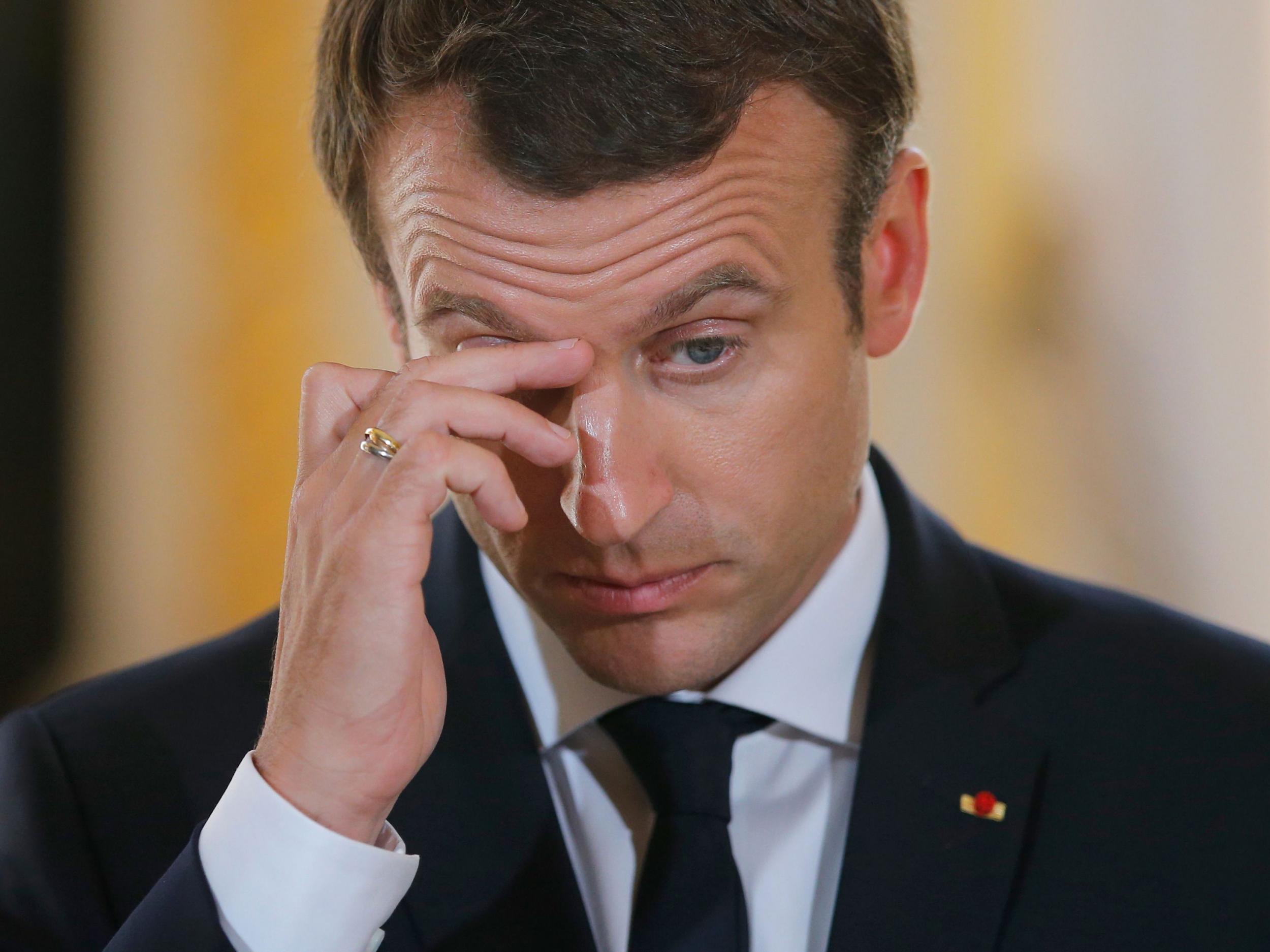Macron was never the saviour of the centre – his approval ratings show just how unpopular neoliberal politics really are
A mere 16 per cent of Macron voters picked his political programme as the main reason behind their vote, so why are we so surprised that the more the public see of Macron and his politics without the spectre of Marine Le Pen, the more they begin to resent him?


Your support helps us to tell the story
From reproductive rights to climate change to Big Tech, The Independent is on the ground when the story is developing. Whether it's investigating the financials of Elon Musk's pro-Trump PAC or producing our latest documentary, 'The A Word', which shines a light on the American women fighting for reproductive rights, we know how important it is to parse out the facts from the messaging.
At such a critical moment in US history, we need reporters on the ground. Your donation allows us to keep sending journalists to speak to both sides of the story.
The Independent is trusted by Americans across the entire political spectrum. And unlike many other quality news outlets, we choose not to lock Americans out of our reporting and analysis with paywalls. We believe quality journalism should be available to everyone, paid for by those who can afford it.
Your support makes all the difference.The triumphalist train of thought exhibited by many mainstream politicians and commentators after Emmanuel Macron’s victory in the French presidential election baffled me. “Centrism is saved!” they cried. To them, it signalled political renewal of the centre-ground, a fightback against the populist forces of the left and right. Two months down the line, it appears they are already losing their momentum.
Yesterday, it was reported that Macron’s approval ratings have suffered the worst setback of any French president over the last two decades. While this drop may seem substantial, when you look at his election campaign, his opponent and his subsequent political programme, it soon becomes clear that it was an inevitable consequence all along.
His centrist “people-powered” En Marche! movement was marketed as a fresh start, a new organisation that did not have the baggage (and the negative approval ratings) of the establishment parties of old. Despite this clever and manipulative branding, the reality has not matched the rhetoric. The politics he espouses embodies the status quo and rests firmly on a neoliberal, pro-EU ticket. While some voters were convinced by the shrewd rhetoric, many acknowledged his duplicity: they either refused to vote (turnout was down sharply in the second round) or held their noses and voted for Macron in order to defeat Marine Le Pen.
Yes, Macron’s victory was impressive. But it was also reliant on those who were duped by his anti-partisan approach, or voted for him as a lesser-evil against a dangerous proto-fascist. His success was less of an endorsement of his politics than it was a rejection of Marine Le Pen’s, with 43 per cent of Macron voters claiming their main reason was to defeat the National Front. It has taken a mere two months for voters to start fleeing a ship that many knew was destined to sink from the moment it departed.
Comparatively, a mere 16 per cent of Macron voters picked his political programme as the main reason behind their vote, so why are we so surprised that the more the public see of Macron and his politics without the spectre of Marine Le Pen, the more they begin to resent him? We have already seen a fractious public clash with the (now former) head of the French armed forces over his proposed £750m cuts to the military – and this is just the beginning. The £53bn austerity programme over his tenure will involve drastic cuts to housing benefits, the loss of 120,000 public sector jobs and obscene tax cuts for the rich and corporations. This is without his deeply offensive comments on ‘civilizational problems’ in Africa and his cosying up to President Donald Trump.
While some suggest Macron is simply playing realpolitik with Trump, Siddhartha Miller of Foreign Policy claims that “the lurking worry about the budding Trump-Macron relationship is that Macron may actually be enjoying it.” After all, in Britain, we have already witnessed how an avowed centrist with a supposed sense of moral responsibility can enjoy being lapdog to an authoritarian Republican president. Macron’s political programme and his first summer in office has been nothing but toxic, and it’s really no surprise that this is being reflected in the opinion polls.
But what are the implications of this for the centre, and the broader spectrum of French politics? As opposed to a centrist revival, Macron’s tenure is beginning to look like death rattle – an inconsequential last hurrah for an ideology that people are already planning a funeral for. From now on, his toxic, neoliberal politics will damage his reputation and perpetuate the inequality that provides the perfect breeding ground for populists to his left and right to thrive. It’s taken two months for the French people to see through the façade, and is becoming clearer by the day that winning the election was the peak of Macron’s political career. It’s all downhill from here, mon ami.
Join our commenting forum
Join thought-provoking conversations, follow other Independent readers and see their replies
Comments